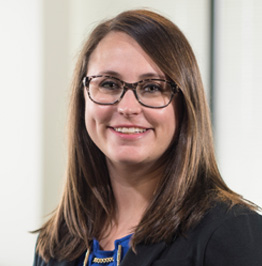
Options to protect both the beneficiary’s assets and benefits
A special needs trust is a wonderful tool that can empower a person with disability (“PWD”) and their family, by preserving access to benefits while at the same time protecting family assets. Family members can create a trust and name a trustee for their loved one so that assets will be held for their benefit and will not interfere with the means-based qualifications for Medicaid or SSI benefits, which are so important in today’s world. But what if the PWD is already in possession of the assets in question, or receives an unexpected inheritance or personal injury settlement?
Owning or receiving such assets could require the beneficiary to forfeit the assets to the government to repay past benefits or, worse, disqualify the beneficiary from needed access to Medicare, SSI, and Medicaid.
Fortunately, there are options to protect both the beneficiary’s assets and benefits. Under provisions of the Social Security Act in 42 U.S.C. §1396, a person with a disability can create their own trust, or a family member can assist in creating one for them, utilizing their own assets. Such “self-settled” trusts provide a way for the PWD to continue to receive public benefits while still having access to assets that provide otherwise-unaffordable benefits such as advanced medical, dental or psychological treatment, prosthetics, or even vacation or wellness treatments that public benefits do not cover.
Payback Trusts. A Payback Trust is authorized under section 1396(d)(4)(A) of the Act and is therefore sometimes called (d)(4)(A) trust. In such a trust, a family member or other trusted person serves as trustee and can manage the funds and provide customized care for the beneficiary’s particular needs. If any assets remain when the PWD eventually passes away, those assets must first be used to repay for public benefits provided during lifetime, and any remainder can be distributed to family members or in accord with the PWD’s Will. It is important to have the right trustee for a payback trust, and it may be difficult or expensive to find a trustee or manage a small amount in a payback trust.
Pooled Trusts. In a pooled or (d)(4)(C) trust, the trust assets are placed with a non-profit entity who utilizes a professional trustee to manage the funds. The pooled trust trustee looks after the beneficiary’s needs during lifetime, and after their death, the funds go to repay for any public benefits or pass to the non-profit entity to benefit others with disabilities. Because the PWD’s account is pooled and managed together with others, the administrative expenses in pooled trusts are often more manageable.
ABLE Accounts. Both Federal and Pennsylvania law have authorized the creation of a special account called an “Achieving a Better Life Experience” or ABLE account, which allows a PWD to deposit up to $15,000 annually, and hold a total of less than $100,000, for their own personal use, for qualified expenditures. To create an ABLE account, the person’s disability must have been present before they achieve age 26. ABLE is intended to allow the PWD some autonomy, and to keep some of their own wages or other funds without running afoul of the strict asset limitations that control SSI. An Able account can work well in conjunction with pooled, payback, or other special needs trusts to both protect and empower the PWD.
We can help. Families with a person-with-disability require special planning. Care should be given to assure that an inheritance to that person will not jeopardize their benefits. This can be accomplished with careful estate planning of parents of the person with disability. But even if unexpected funds are received by the PWD, it is not too late to protect those assets with a self-settled payback or pooled trust, or by utilizing an ABLE account. CGA Law Firm’s attorneys are ready to serve and assist you with this or any of your estate planning needs.
Devon Myers Kolomick is a shareholder of CGA Law Firm. Devon provides general legal service to individuals and businesses in the areas of estate planning and administration, real estate, business law and municipal law.

Timothy J. Bupp is a Certified Elder and Special Needs Law Attorney (CELA) and the Chair of the Estate Planning Department of CGA Law Firm.

For more information on Estate Planning and Administration or any of our other areas of law, please visit our website.
CGA’s latest blog posts.
Student Loan Collections Are Resuming: What Pennsylvania Borrowers Need to Know About Bankruptcy Protection
Millions of student loan borrowers across the United States are about to face a harsh reality. Starting May 5, 2025, the U.S. Department of Education will begin resuming collection efforts on federal student loans that are in default—a move that could result in wage garnishments, tax refund interceptions and social security setoffs, and other aggressive…
CGA Law Firm Announces Retirement of Jack M. Hartman
CGA Law firm announces the retirement of Jack M. Hartman after fifty years of distinguished legal practice. Jack joined CGA in 2015 and has served as Chair of the Litigation Department, Co-Chair of the Professional Development Committee, Shareholder, and Of Counsel. Jack’s practice included complex civil litigation, health law, and alternative dispute resolution. He was…
Continue Reading CGA Law Firm Announces Retirement of Jack M. Hartman

